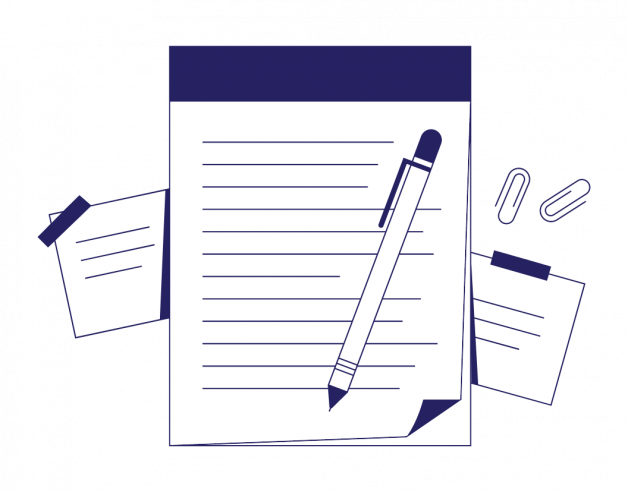
-
2-minute read
-
24th December 2022
13 Examples of Irregular Plurals
English is notorious for having many exceptions to its grammar rules. Changing nouns to their plural forms is an example of this, due to the hundreds of irregular nouns in the language. This post will cover the different types of irregular nouns, show their plural forms, and give even more exceptions along the way.
1. Nouns Ending in -f and -fe → -ves
Elf → Elves
Calf → Calves
Wolf → Wolves
Half → Halves
Loaf → Loaves
Knife → Knives
Dwarf → Dwarves
Scarf → Scarves
Self → Selves
Thief → Thieves
Wife → Wives
Exception: Most words ending in -ff, -ief, -oof, and -eef follow standard plural rules and add -s.
Belief → Beliefs
Relief → Reliefs
Gulf → Gulfs
Cliff → Cliffs
Beef → Beefs
Reef → Reefs
Hoof → Hoofs or Hooves (although hooves is more common)
2. Nouns Ending in -o → -oes
Potato → Potatoes
Volcano → Volcanoes
Tomato → Tomatoes
Echo → Echoes
Hero → Heroes
Veto → Vetoes
Exceptions:
● Words ending in -io (just add an -s)
● Words ending in vowel + consonant + o (just add an -s)
● Some words adopted from other languages
Examples:
Radio → Radios
Audio → Audios
Amnio → Amnios
Scenario → Scenarios
Photo → Photos
Amino → Aminos
Concerto → Concertos or Concerti
3. Nouns Ending in -y → -ies
Words ending in -y are irregular, and there are also exceptions.
Find this useful?
Subscribe to our newsletter and get writing tips from our editors straight to your inbox.
Subscribe to Beyond the Margins and get your monthly fix of editorial strategy, workflow tips, and real-world examples from content leaders.
Baby → Babies
City → Cities
Family → Families
Fry → Fries
Exception: If the last two letters of the noun are a vowel + y, then it does not use -ies.
Day → Days
Joy → Joys
Ray → Rays
Key → Keys
Bay → Bays
Boy → Boys
4. Nouns That Change Vowels
Foot → Feet
Tooth → Teeth
Goose → Geese
Man → Men
Woman → Women
5. Nouns That Use -en
Child → Children
Ox → Oxen
6. Nouns That Use Totally Different Words
Person → People
Mouse → Mice
Louse → Lice
7. Animals That are the Same for Singular and Plural
Fish → Fish or Fishes (fishes is used when referring to a group of fish of different species)
Deer → Deer
Sheep → Sheep
Moose → Moose
Trout → Trout
Bison → Bison
Cod → Cod
Salmon → Salmon
We use collective nouns when we need to talk about a group of these animals. For example:
A herd of moose
A flock/herd of sheep
A hover of trout
A lap of cod
A run of salmon
Latin and Greek Words
8. Nouns Ending in -us → -i
Focus → Foci or Focuses
Fungus → Fungi
Cactus → Cacti
Nucleus → Nuclei
Radius → Radii or Radiuses
Terminus → Termini or Terminuses
Thesaurus → Thesauri or Thesauruses
Alumnus → Alumni
Some exceptions:
Virus → Viruses
Chorus → Choruses
Circus → Circuses
Status → Statuses
9. Nouns ending in -is → -es
Axis → Axes
Crisis → Crises
Thesis → Theses
Analysis → Analyses
Synthesis → Syntheses
10. Nouns Ending in -um and -on → -a
Phenomenon → Phenomena
Criterion → Criteria
Bacterium → Bacteria
Datum → Data (data is often used as a singular and plural noun)
Memorandum → Memoranda
11. Nouns Ending in -ix and -ex → -ces and -xes, respectively
Index → Indices or Indexes
Appendix → Appendices (or appendixes in a medical context)
Vortex → Vortices or Vortexes
12. Nouns Ending in -ma (Add -ta Suffix)
Dogma → Domata
Schema → Schemata
Stigma → Stigmata
Stoma → Stomata
13. Major Exception: Uncountable Nouns Do Not Have Plural Forms
Uncountable nouns are concepts of things that imply a vague amount. For example:
Luggage
Furniture
Advice
Information
Some uncountable nouns use quantifiers if you need to specify an amount. For example:
I need two cups of flour.
We would like to order two glasses of water.
(Or “We would like two waters.”)
Can you get two gallons/cartons/pints of milk from the store?
I have so much homework to do this evening.
Takeaway
Ultimately, memorizing these irregular nouns and their plural forms is the only way to learn them. However, some patterns (as shown above) can help. If you need help with grammar rules or irregular nouns in your writing, check out our common writing errors guide. Or if you’d like help from an expert, we’ll happily proofread a sample of your work for free!




